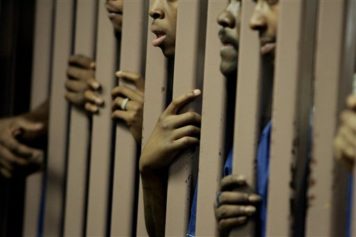As WikiLeaks founder Julian Assange urges the United States to stop its “witch hunt” for the source of the WikiLeaks documents, the nations of South America have pledged their support of Ecuador in granting Assange asylum.
In a meeting, the Union of South American Nations said they support Ecuador “in the face of the threat” to its London embassy. The 12 South American nations were gathered in an emergency summit in the Ecuadorean coastal city of Guayaquil to discuss the Ecuador-British standoff.
The South American foreign ministers publicly showed their unity with Ecuador by joining hands with Ecuador Foreign Minister Ricardo Patino and raising them aloft after Patino read their final declaration of support.
Assange has been at Ecuador’s London embassy since June, but the UK has threatened to lift Ecuador’s diplomatic status, which could result in a major international showdown between the nations of Europe and the U.S. and the nations of South America.
There is clearly a racial aspect to the case, as Ecuador and South America are resisting the efforts of the former world colonizer, Great Britain, to exert its control over the smaller brown countries of South America.
Assange faces extradition to Sweden over sexual assault claims, which he denies.
Correa’s decision to grant asylum came after British authorities threatened to force their way into the embassy, according to Ecuadorian Foreign Minister Ricardo Patino, who said he told them, “We are not a British colony.”
On his Twitter account, President Correa wrote, “No one is going to terrorize us!” indicating that threatening force was the wrong way for Britain to handle the situation.
Correa has said Assange could co-operate with Sweden if assurances are given that there would be no extradition to a third country—namely, the United States.
As for the U.S. position on the matter, White House spokesman Josh Earnest told reporters, “The United States views this as a matter to be resolved between the British government, the Ecuadorean government and the Swedish government. At this point, we have not intervened in this matter and I don’t have any guidance for you right now on whether or not that’s something we would intervene in.”


